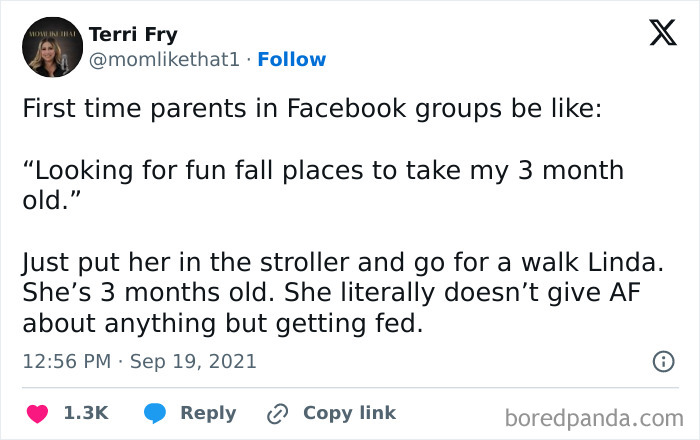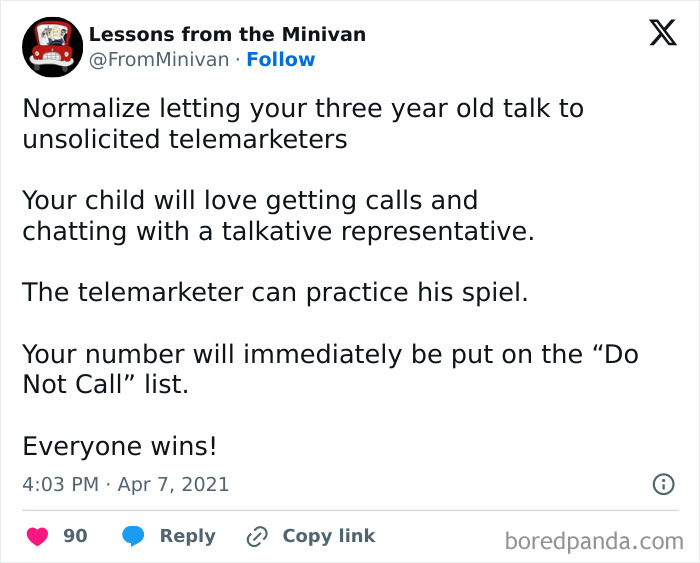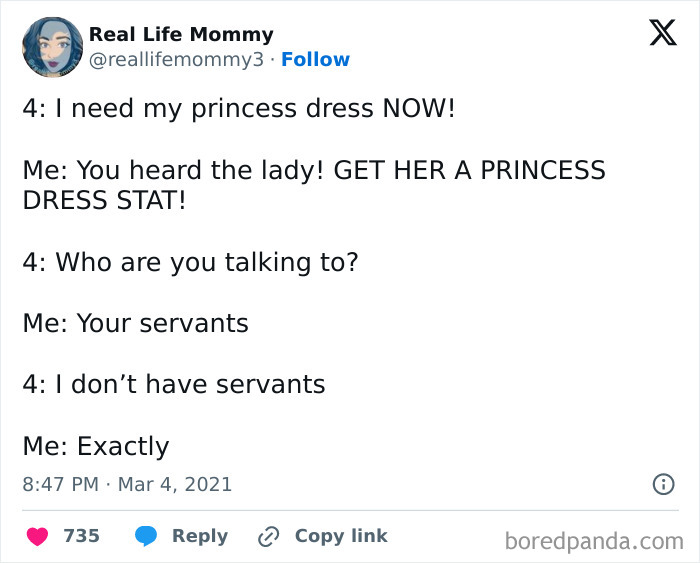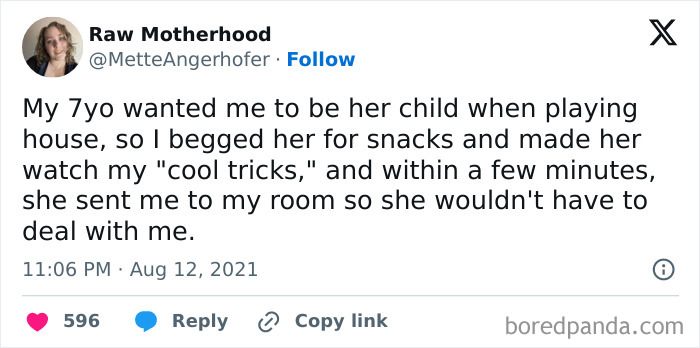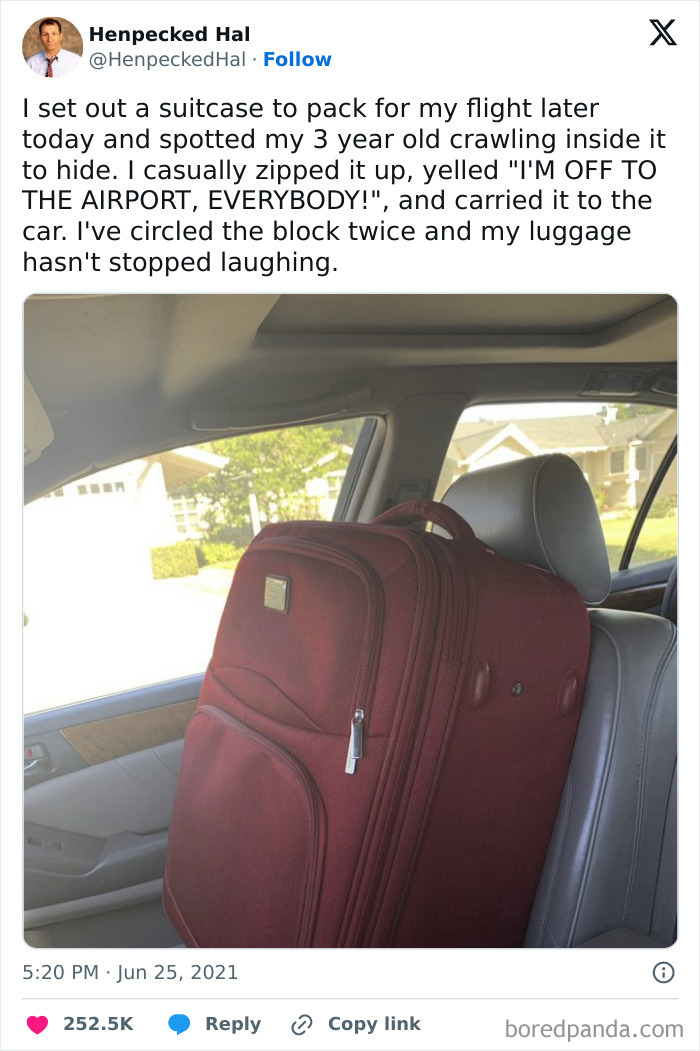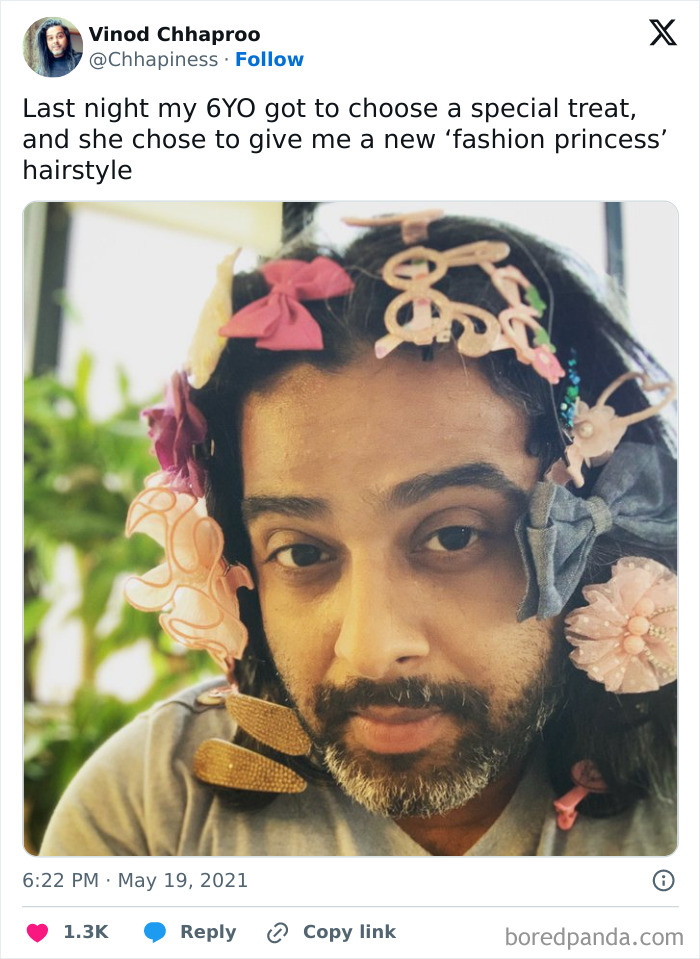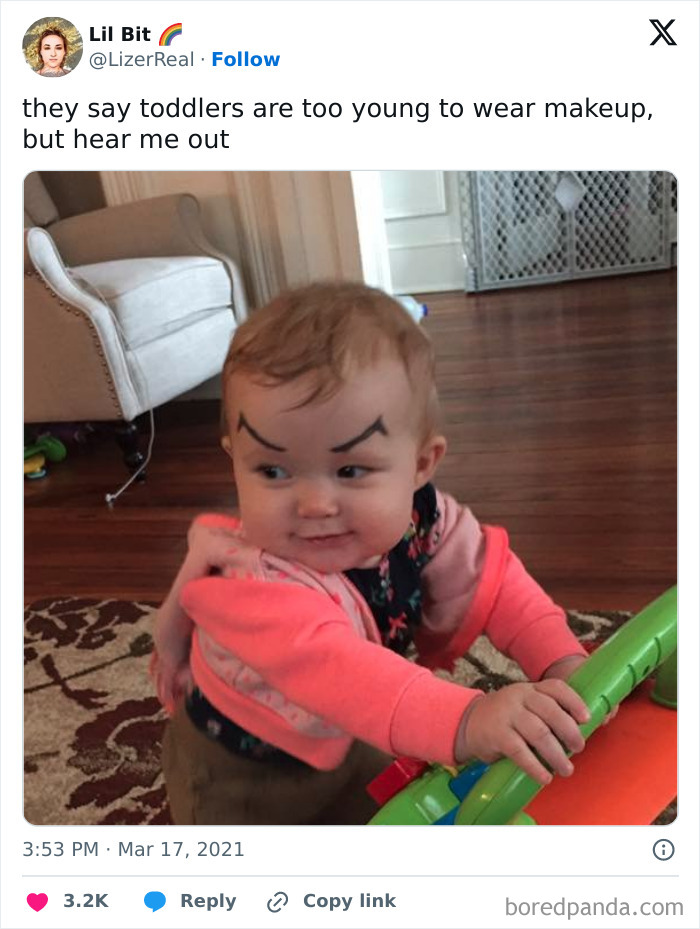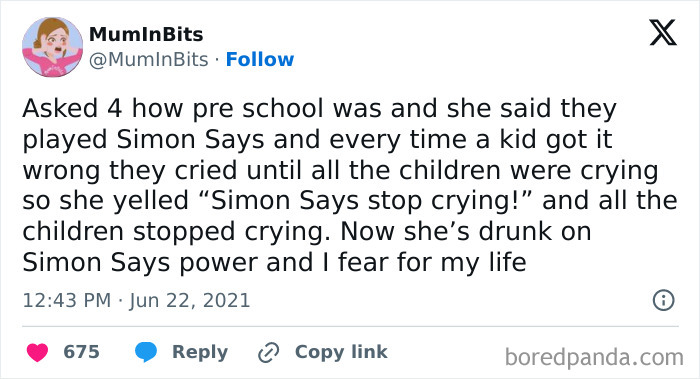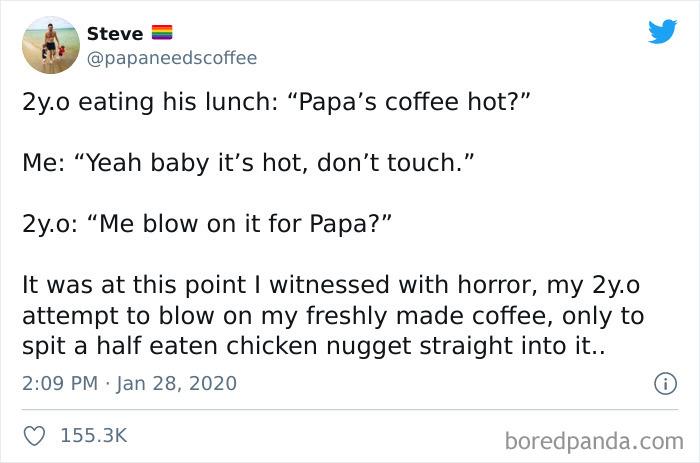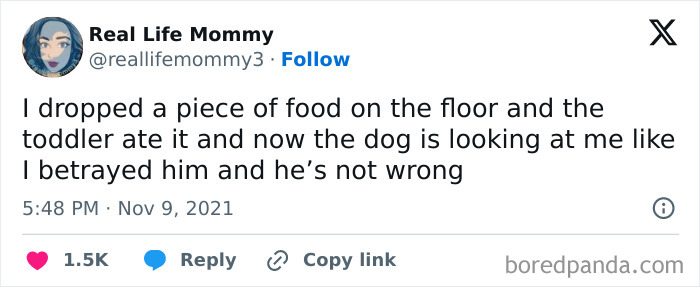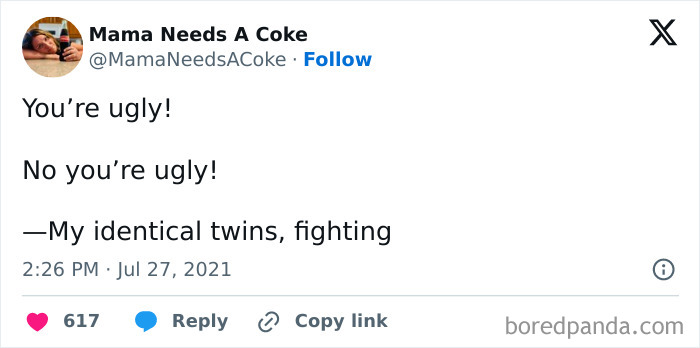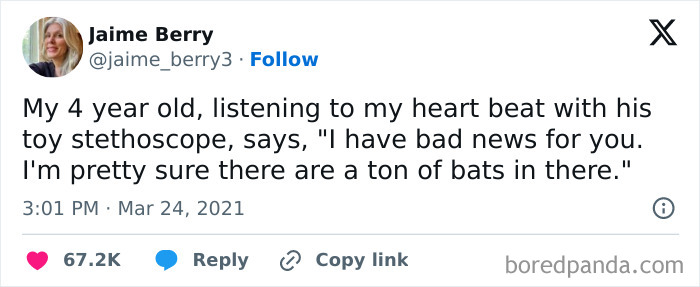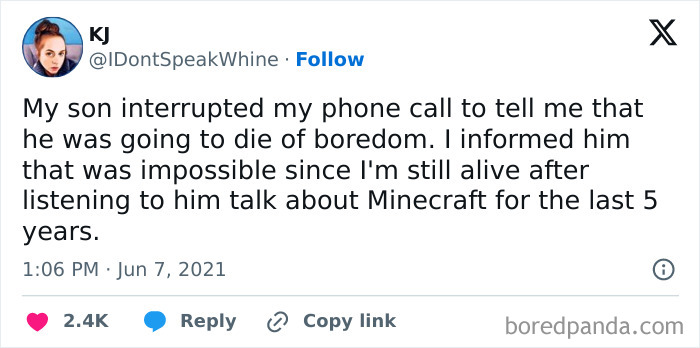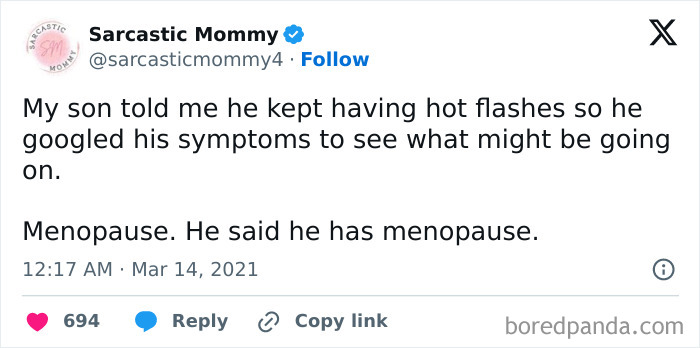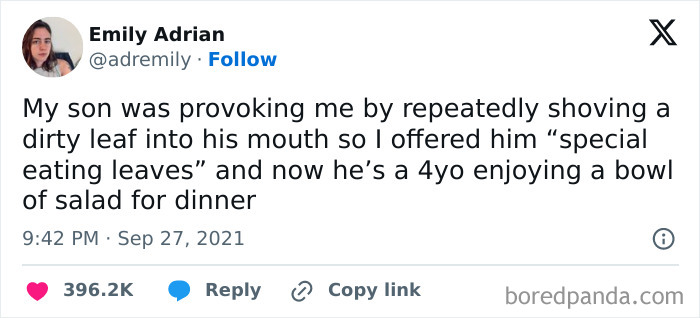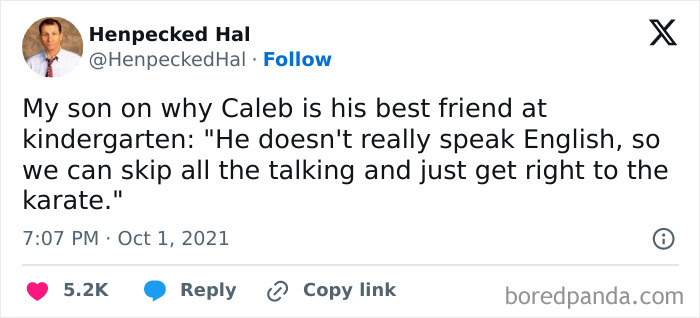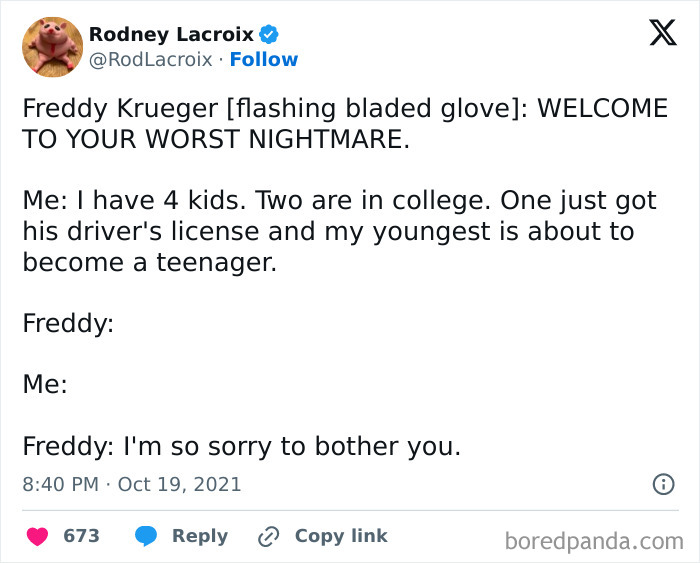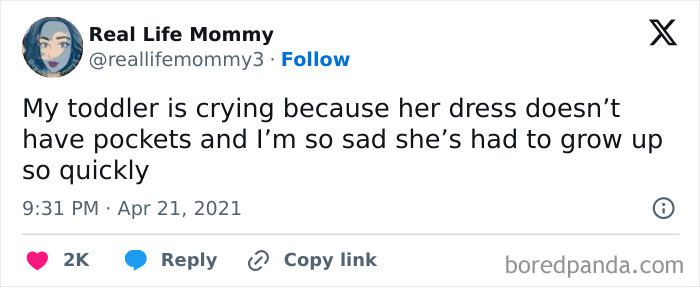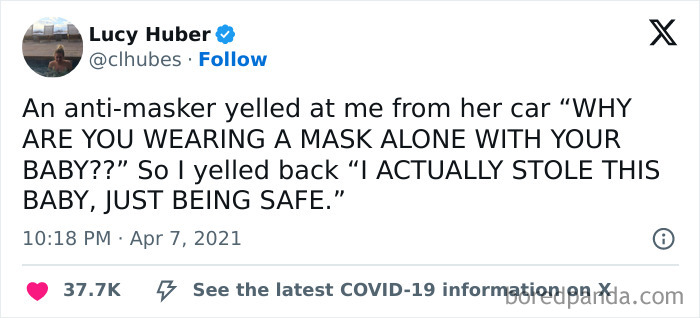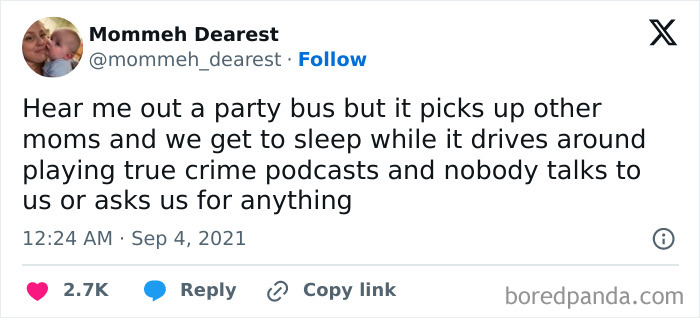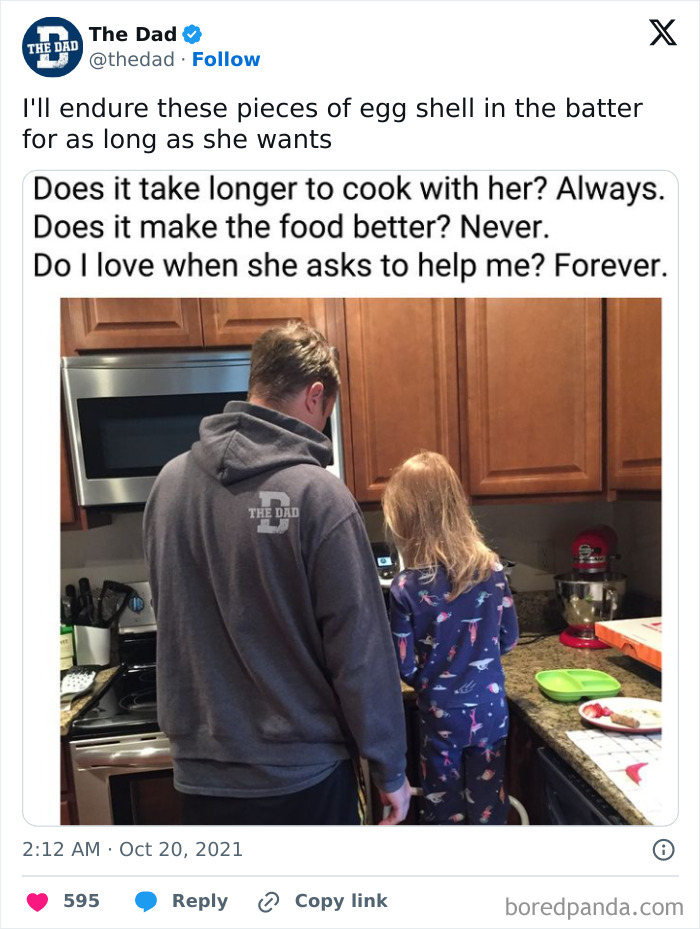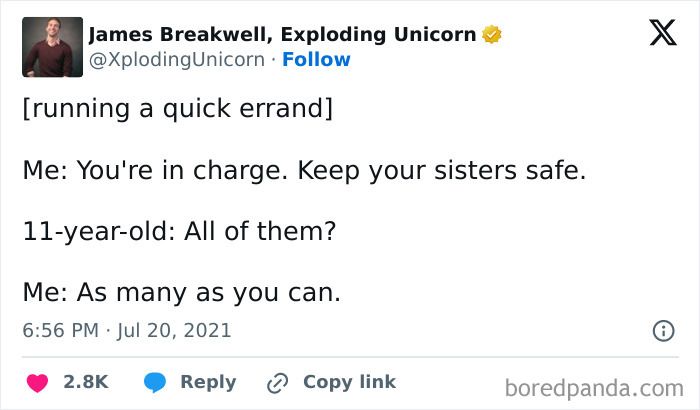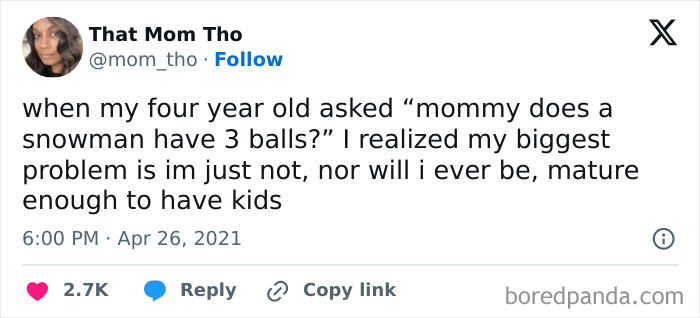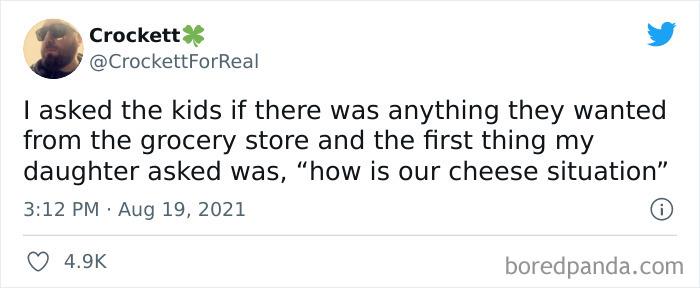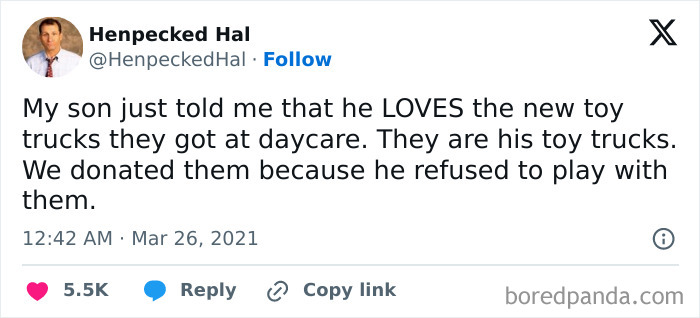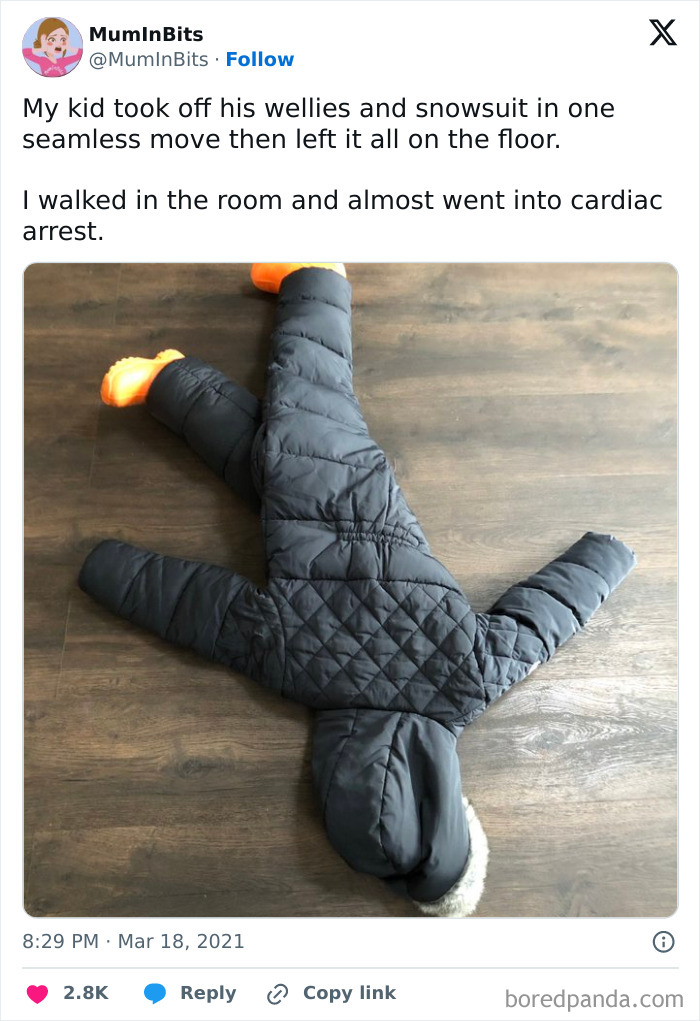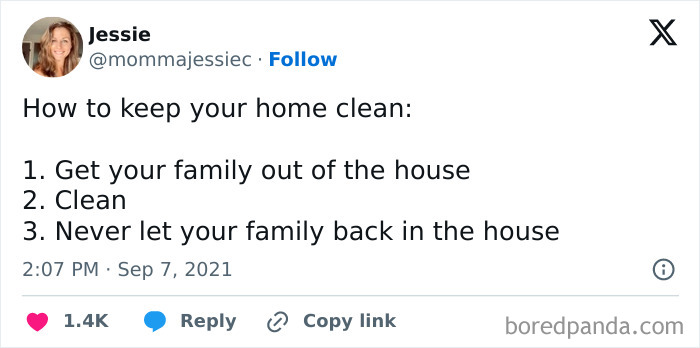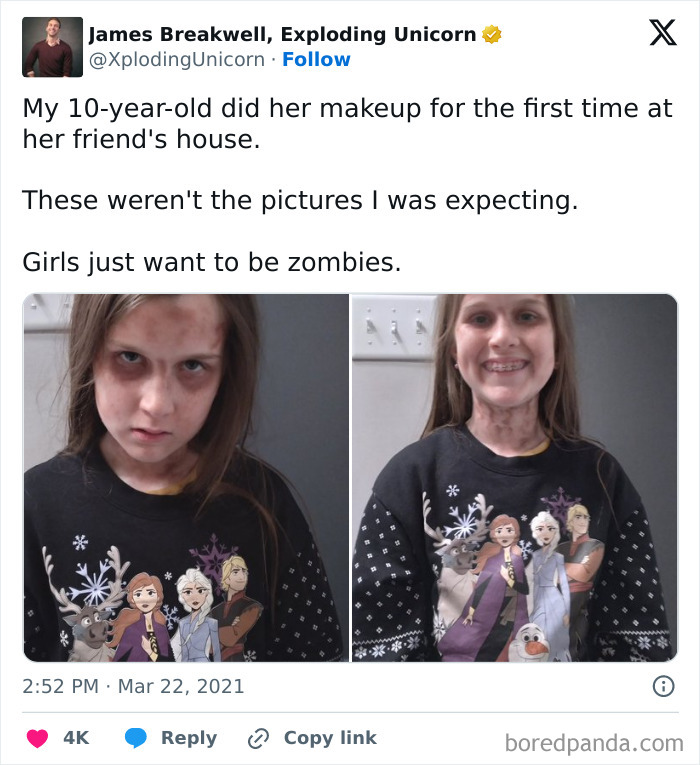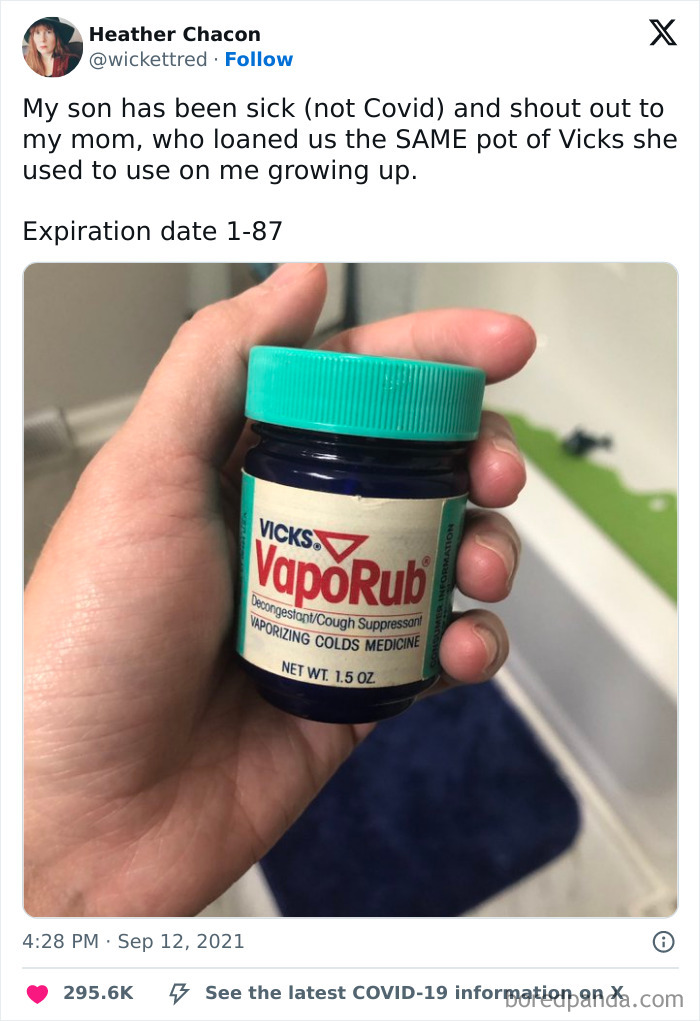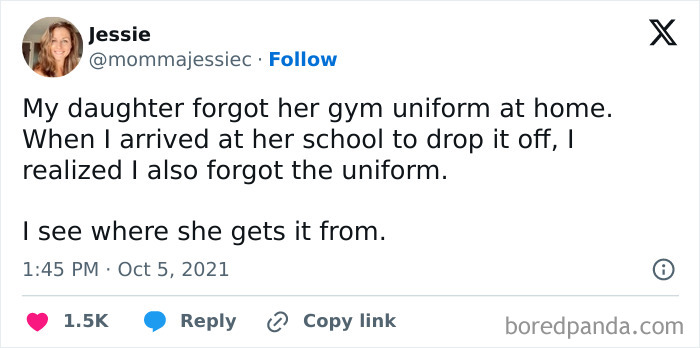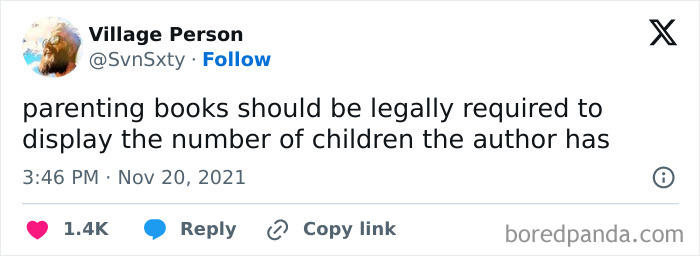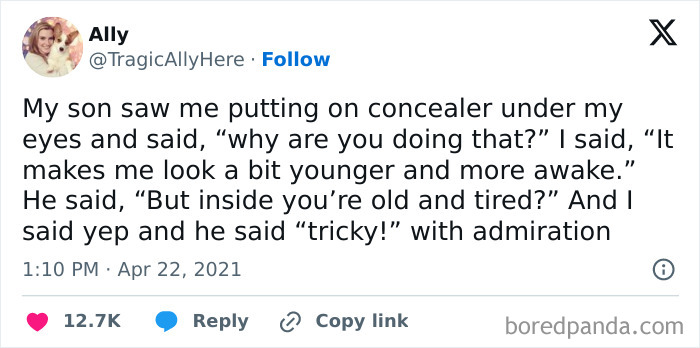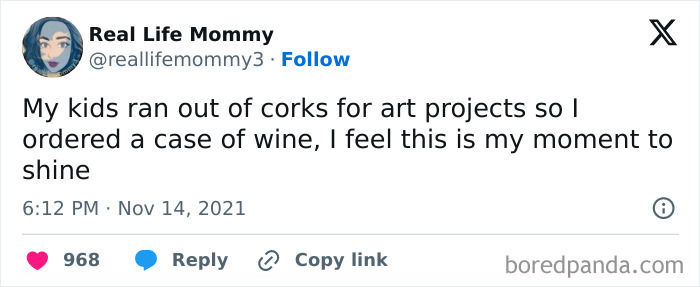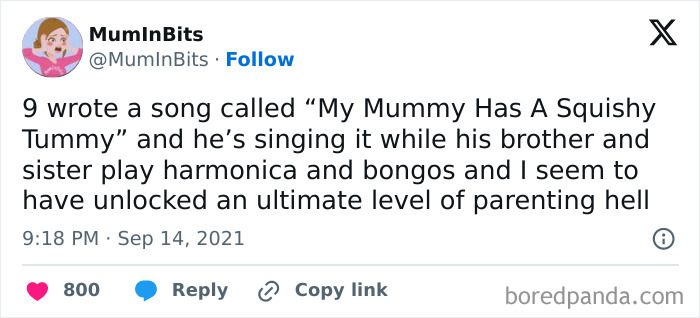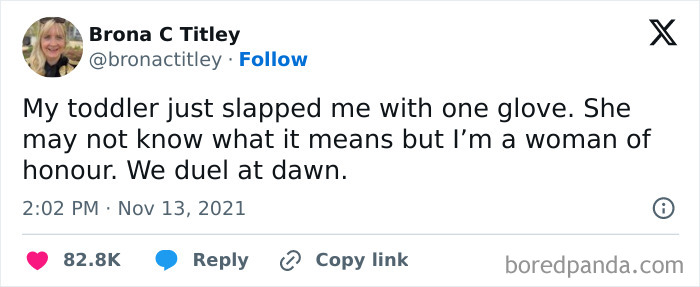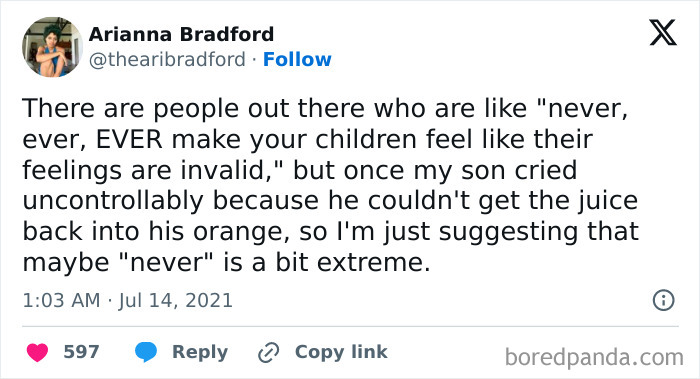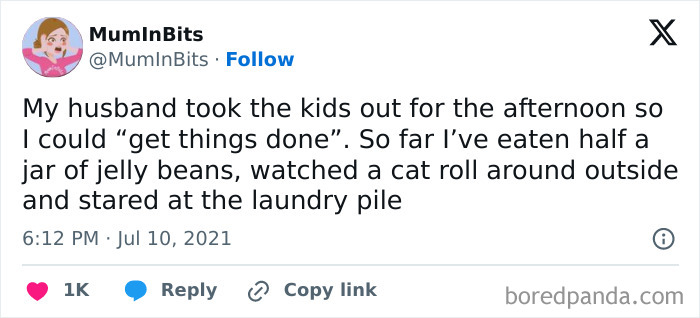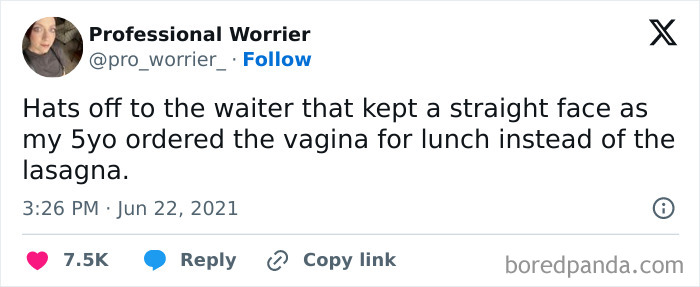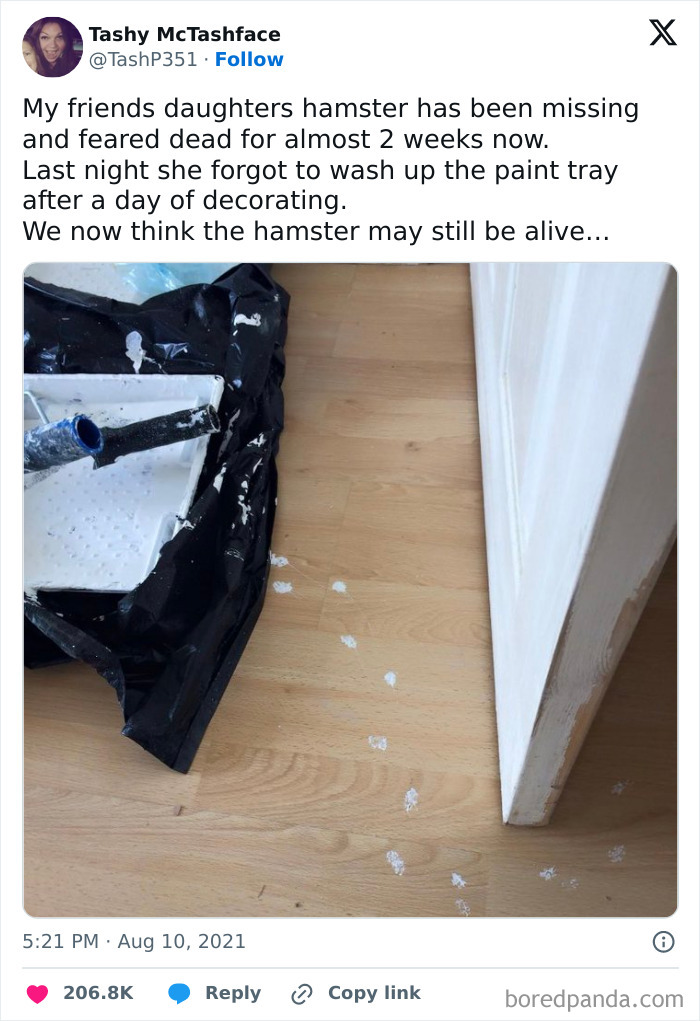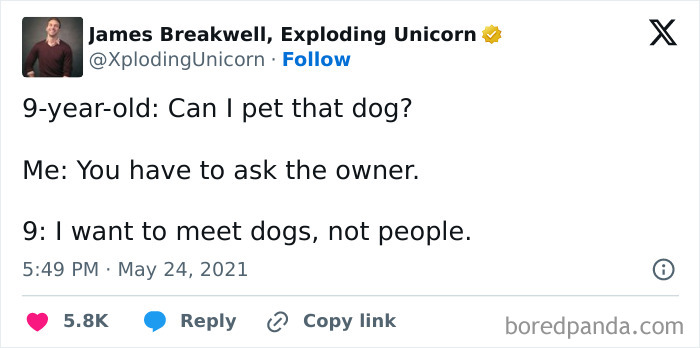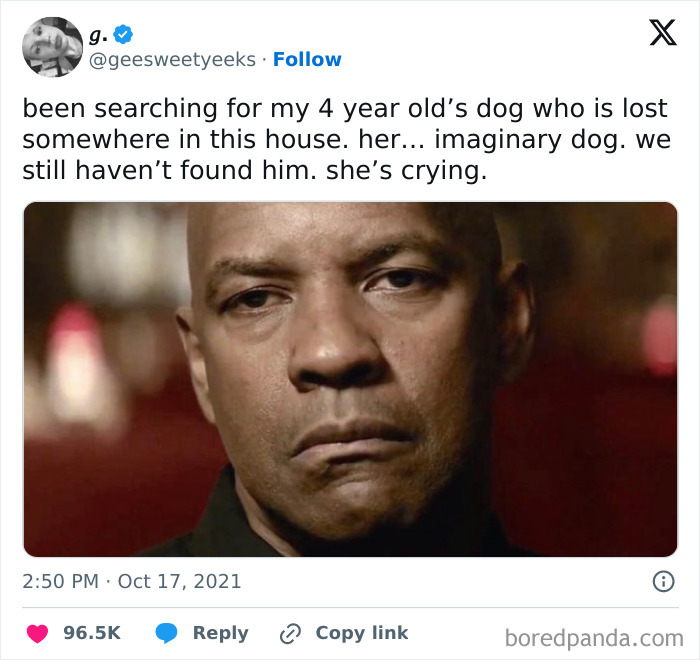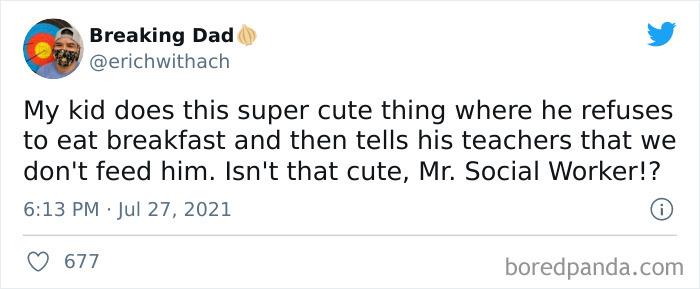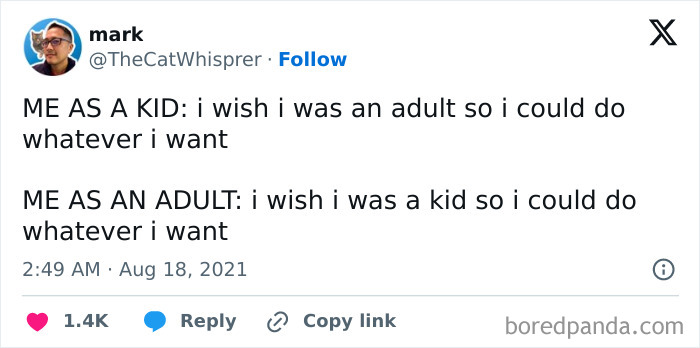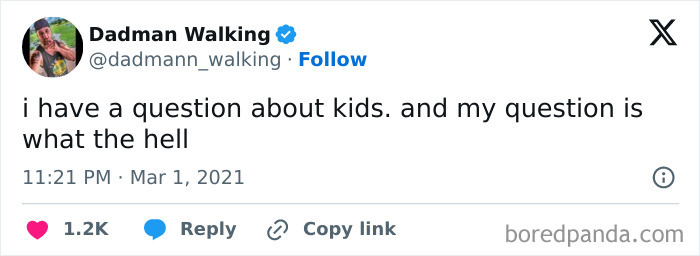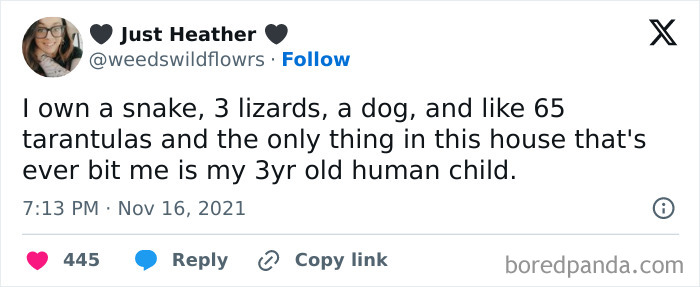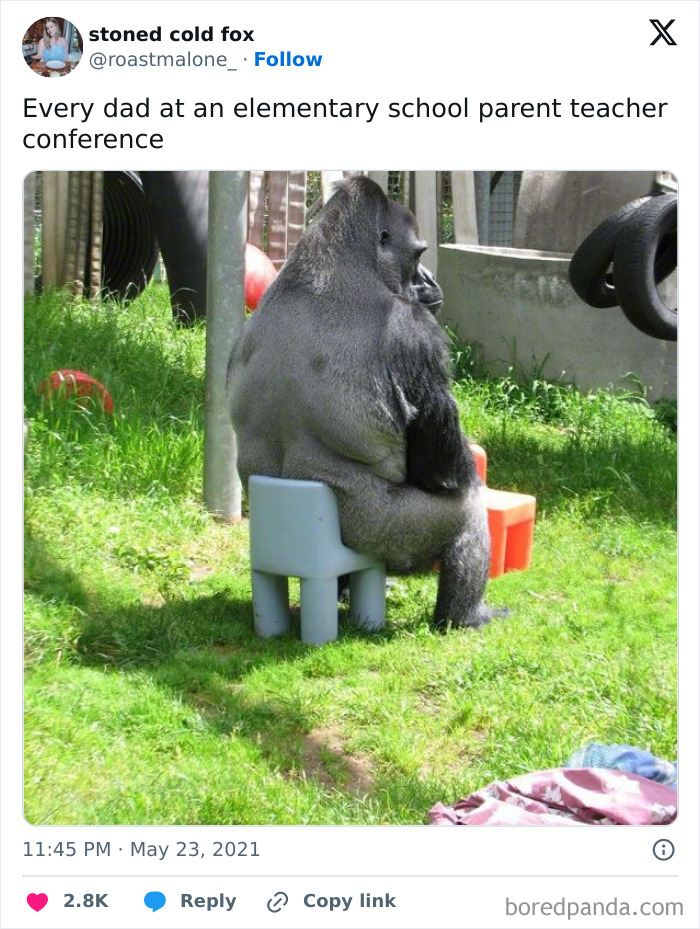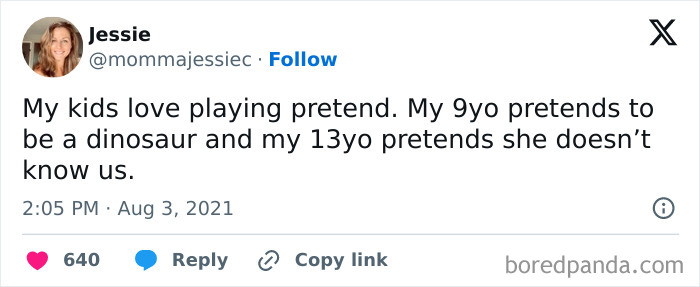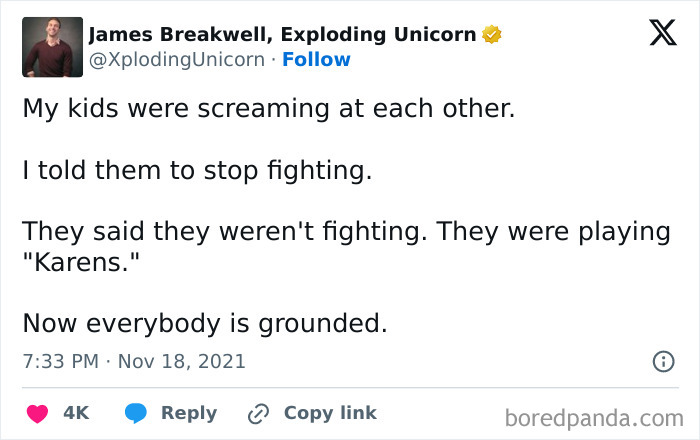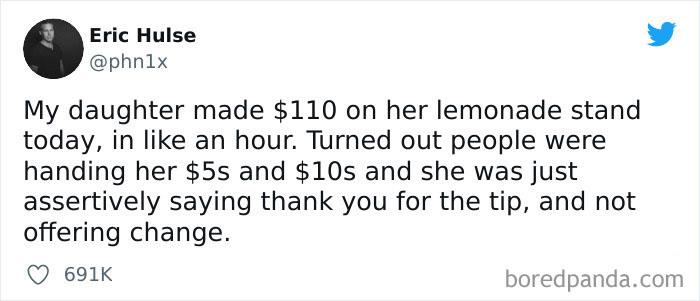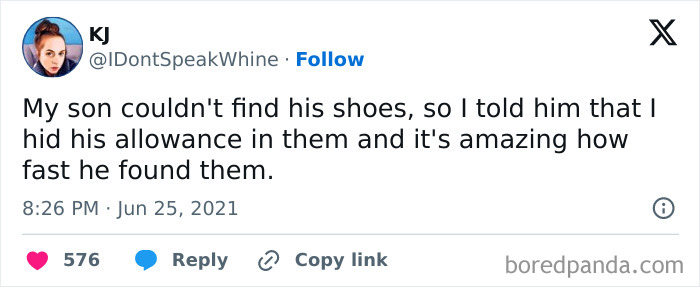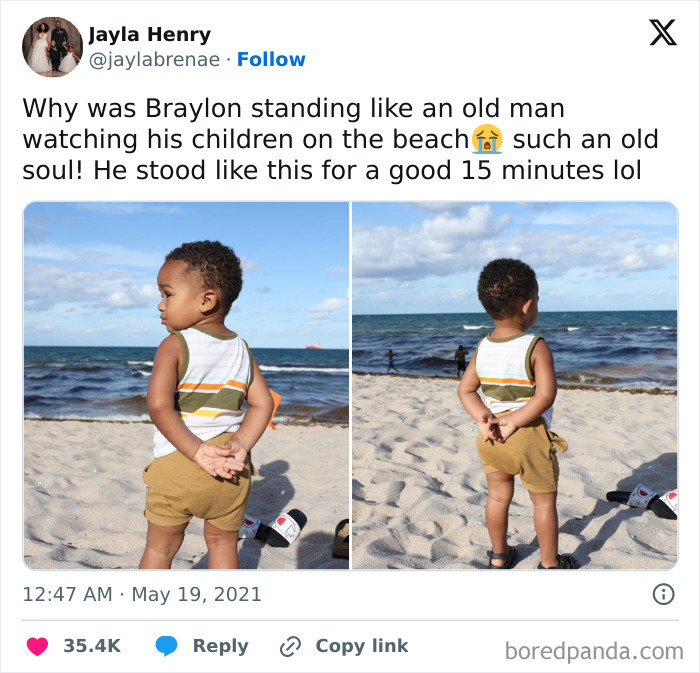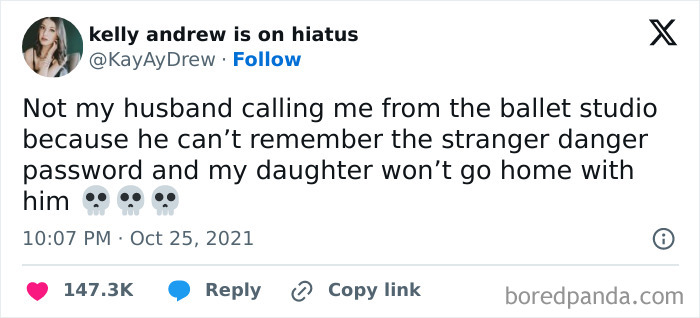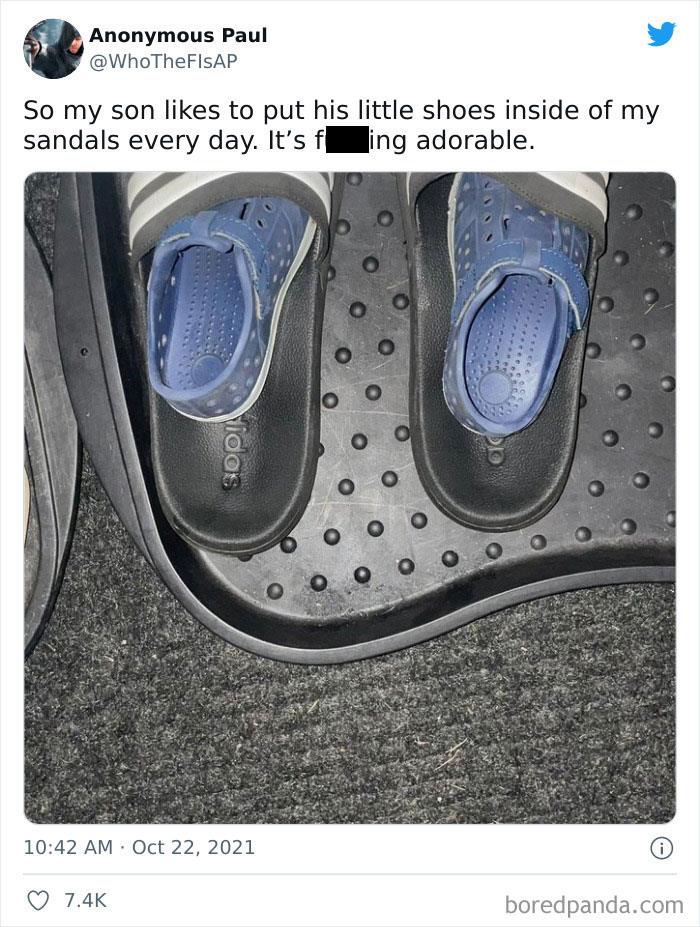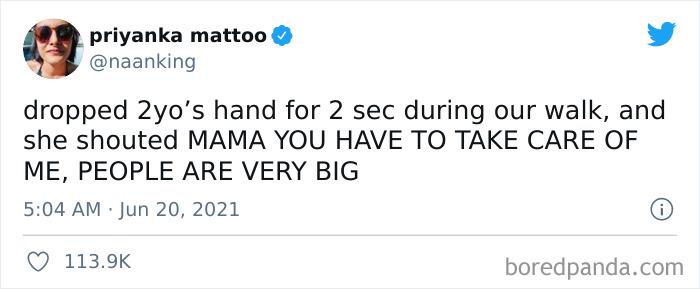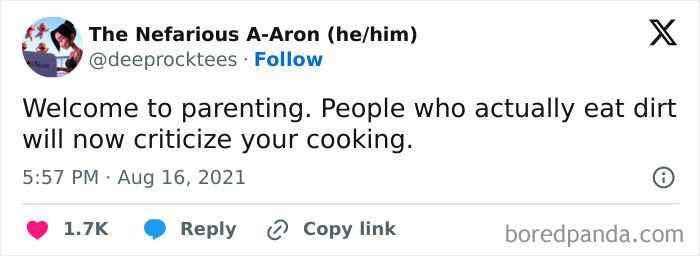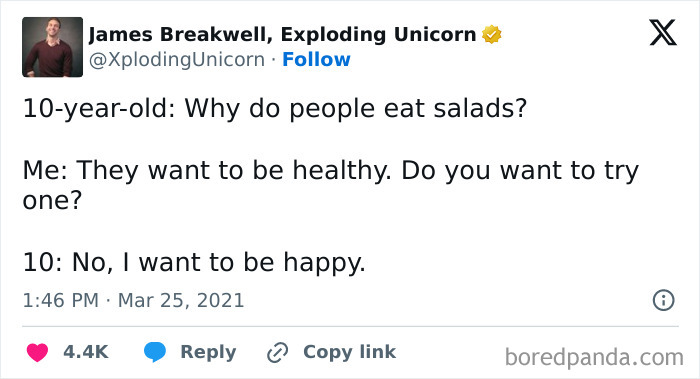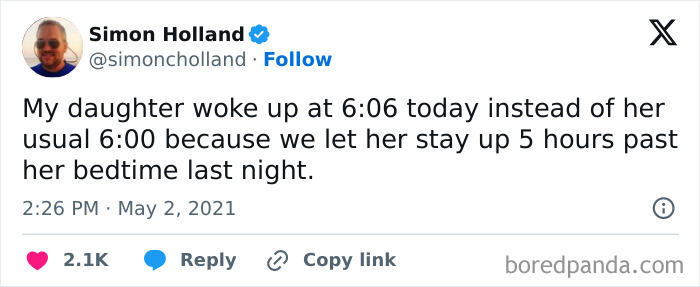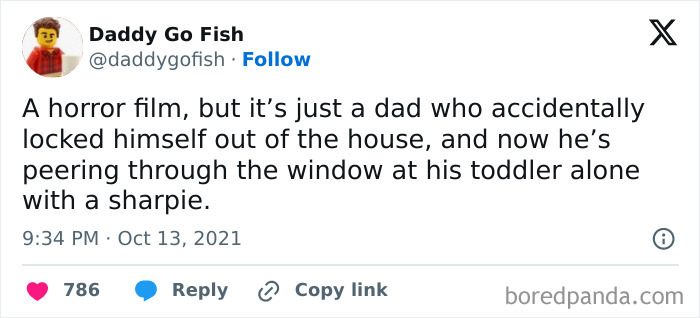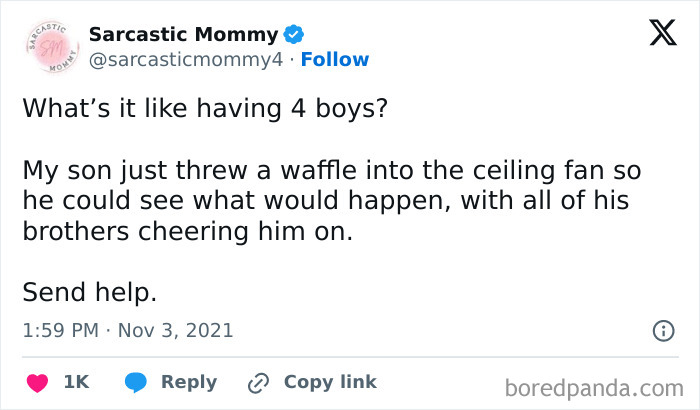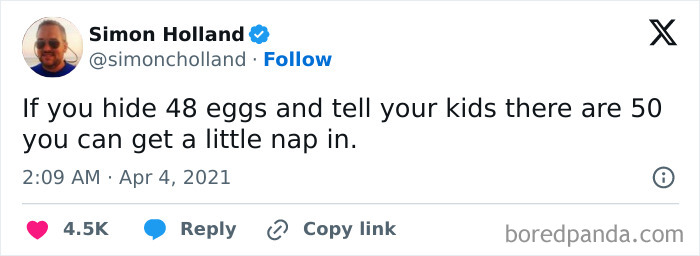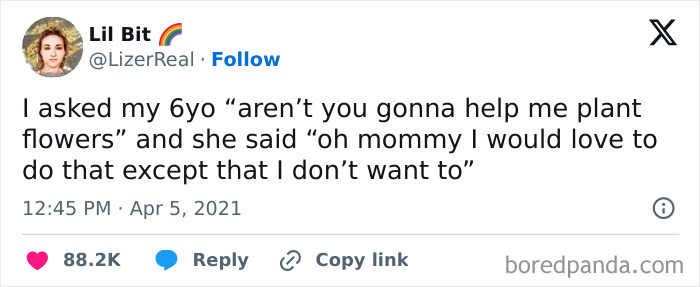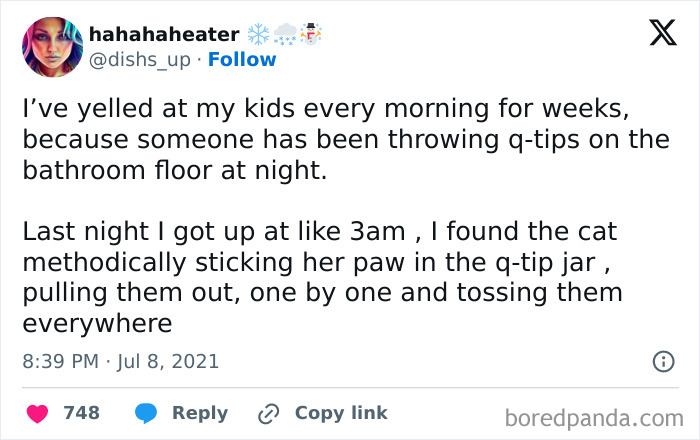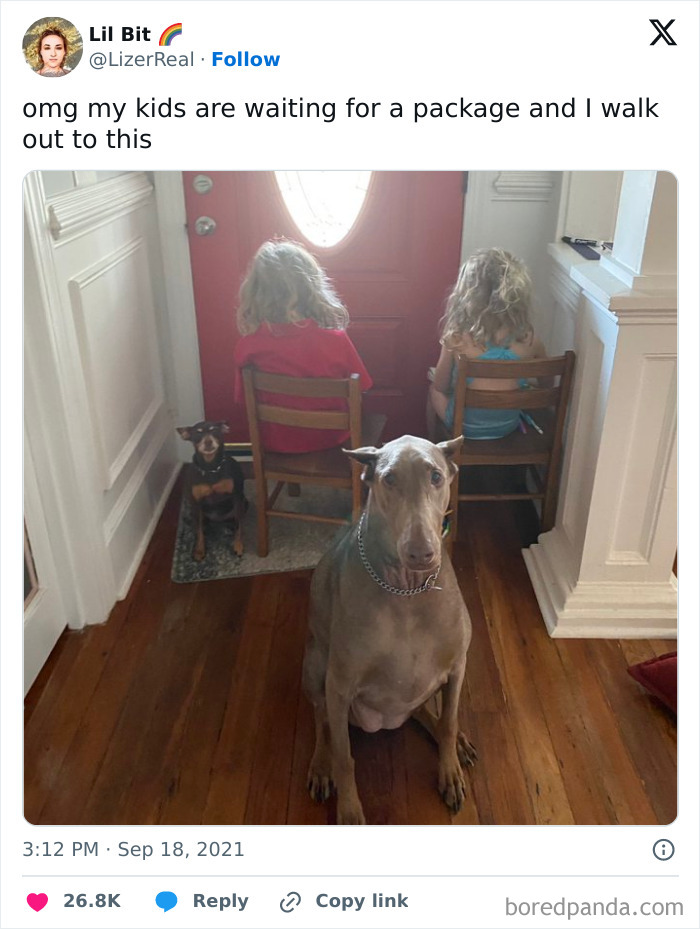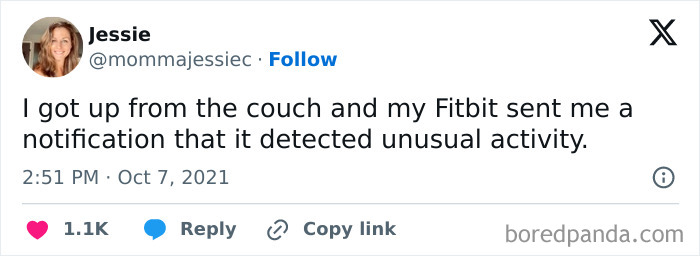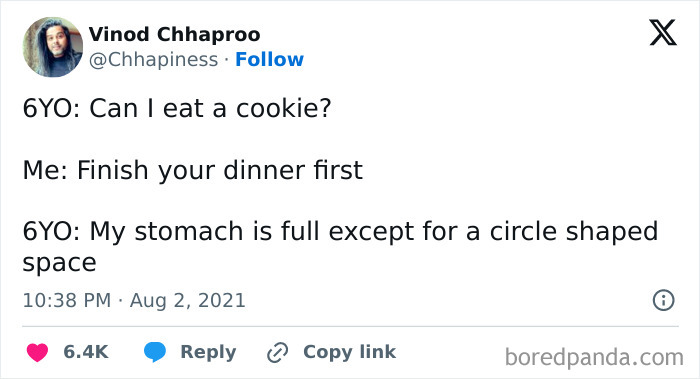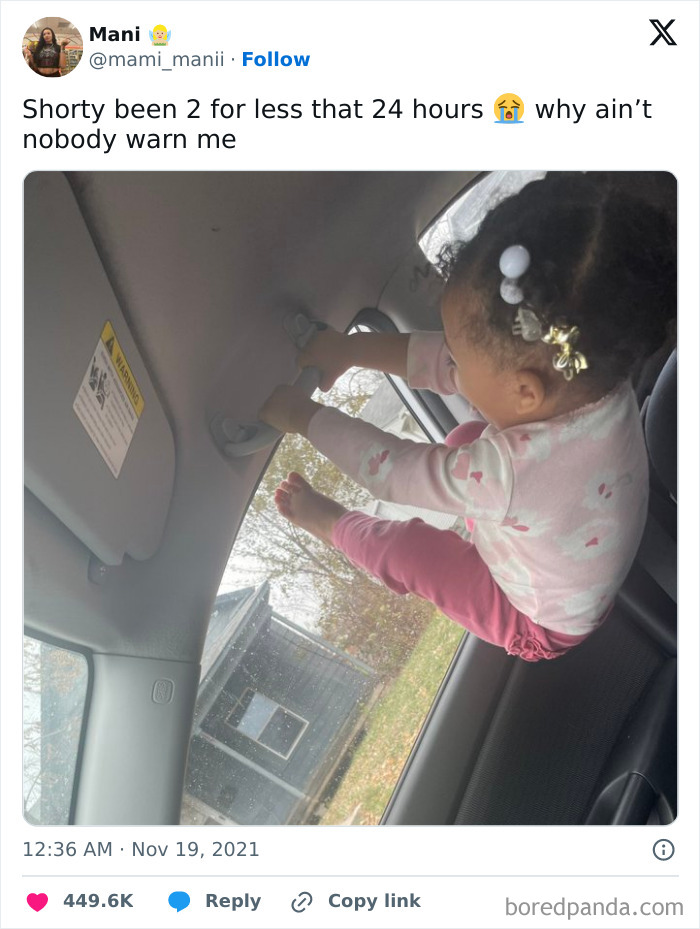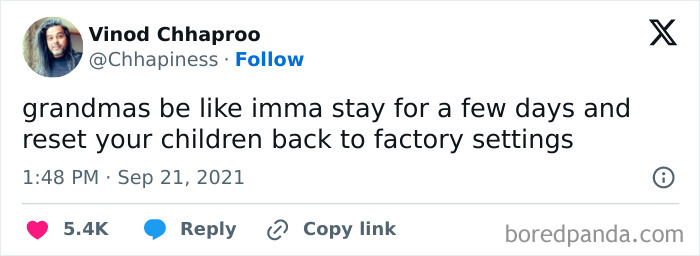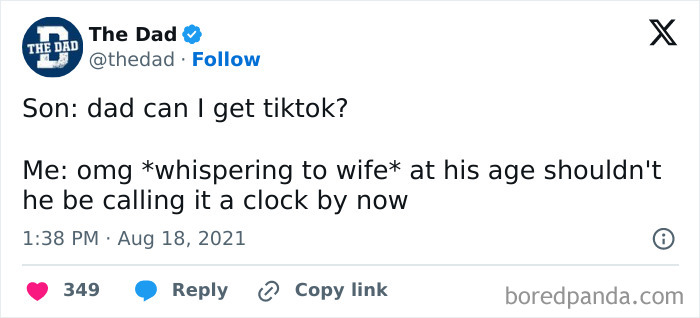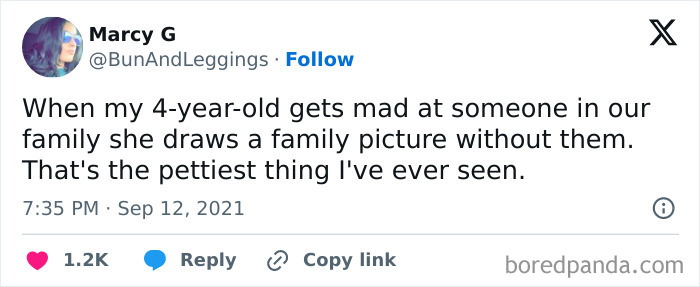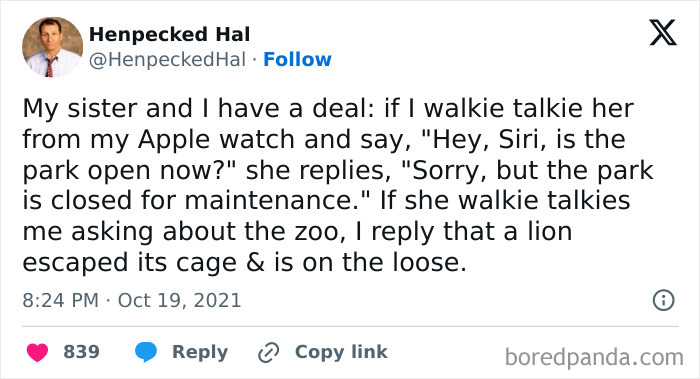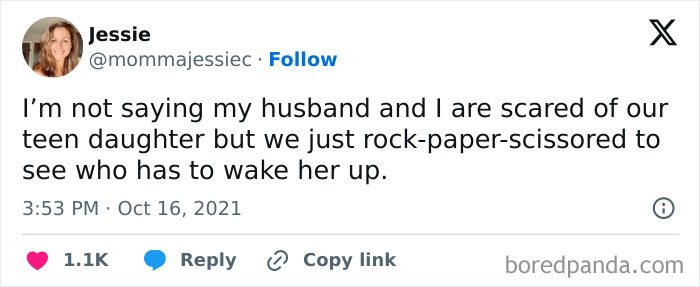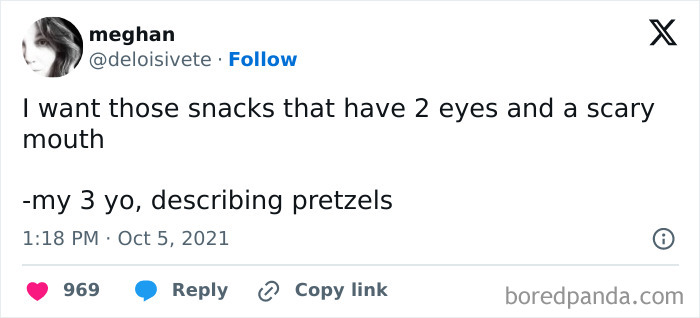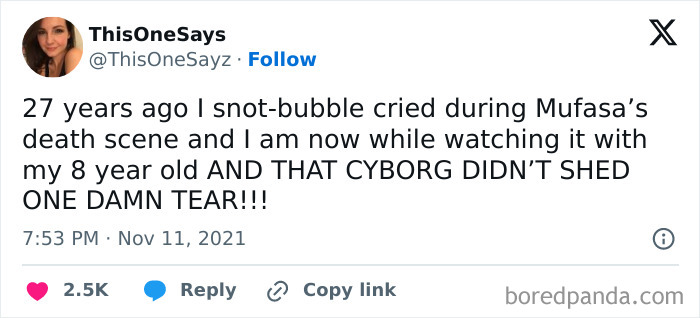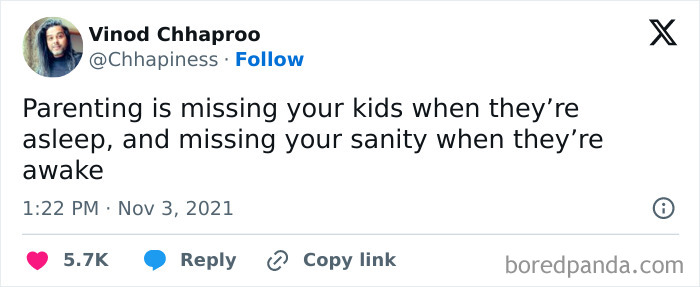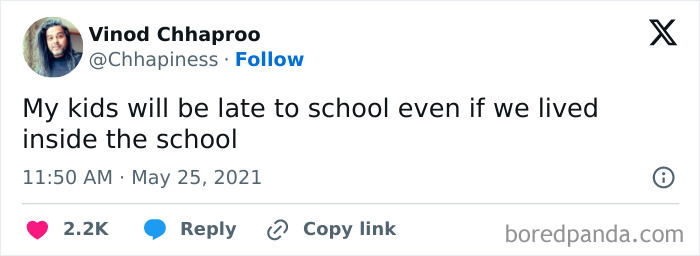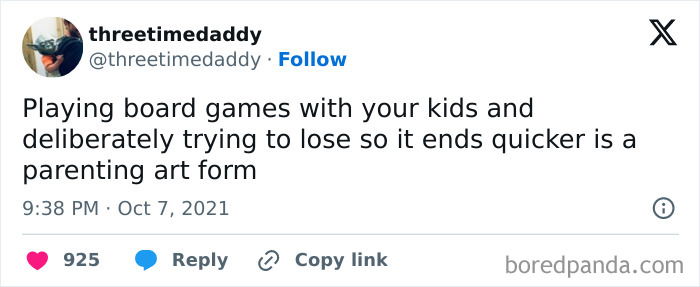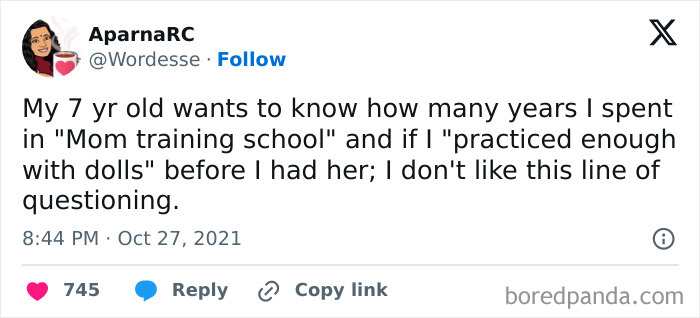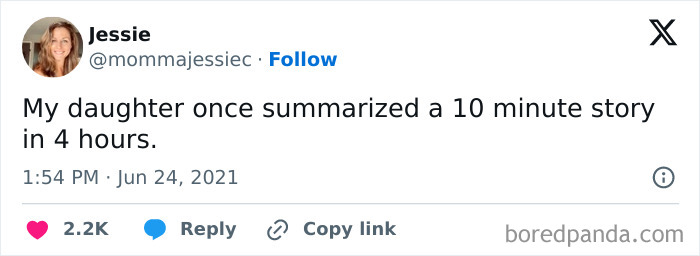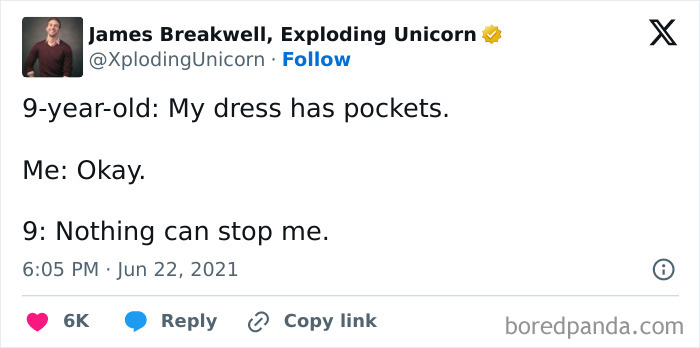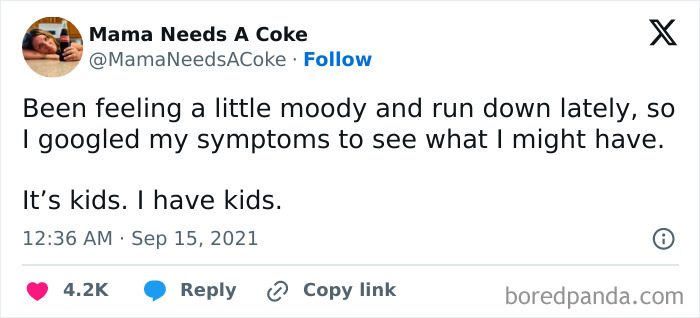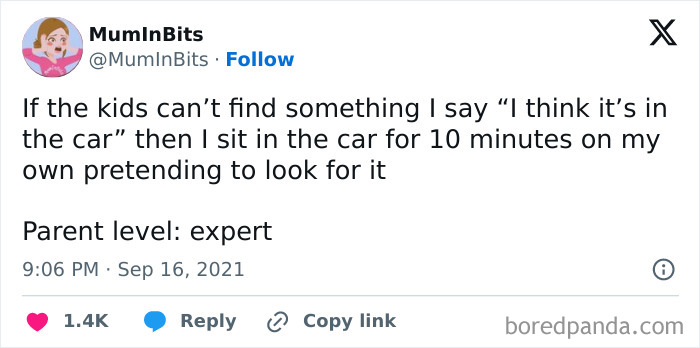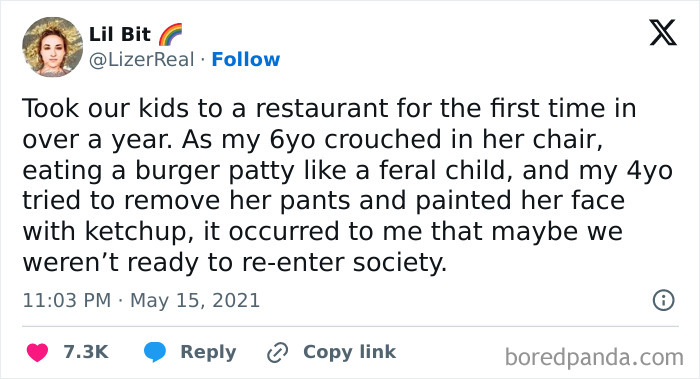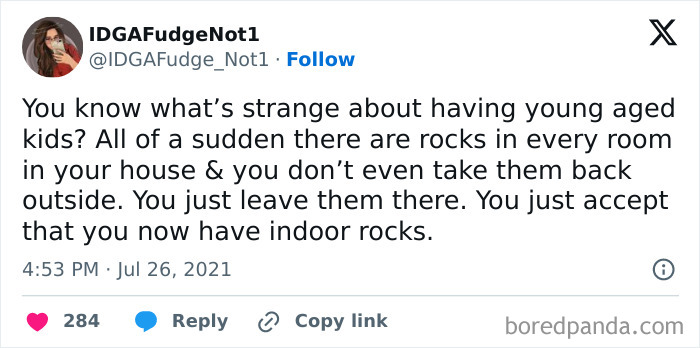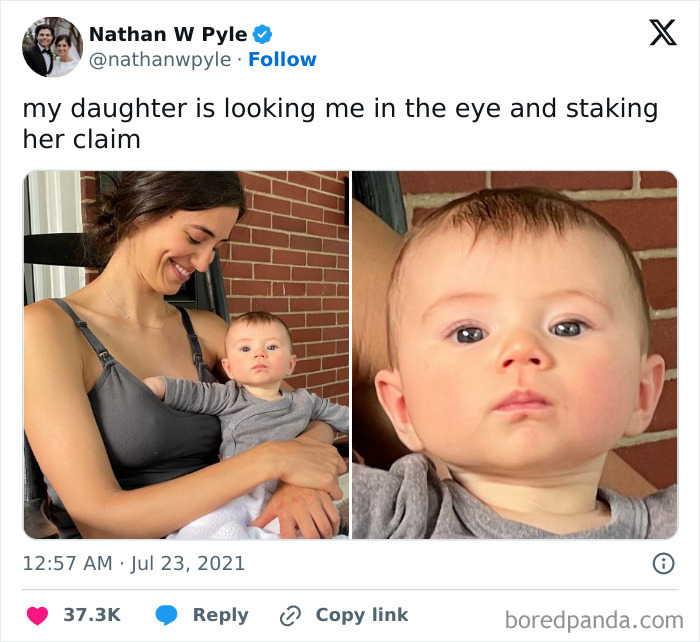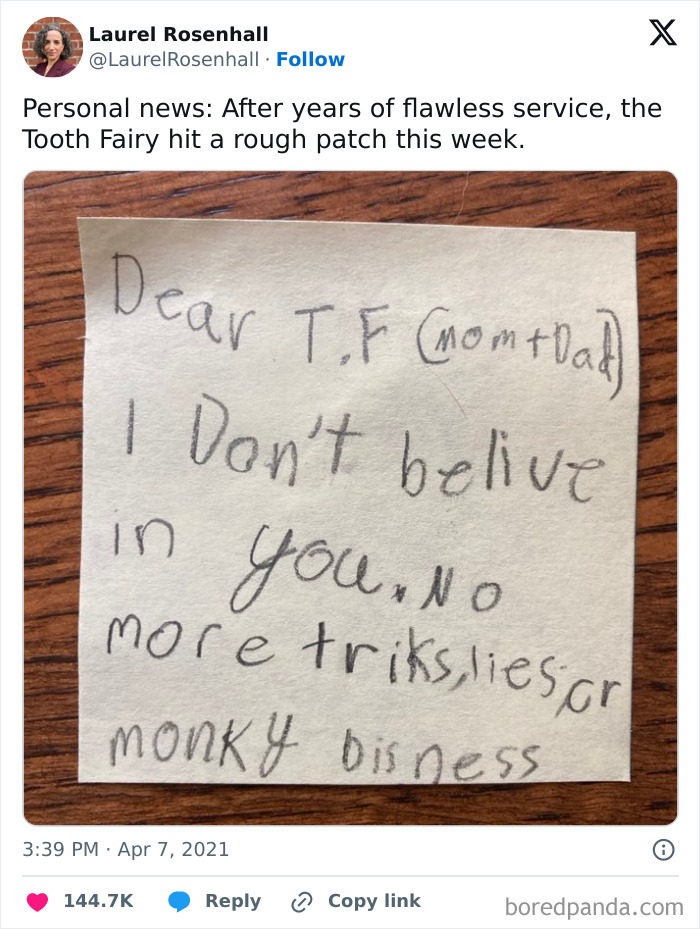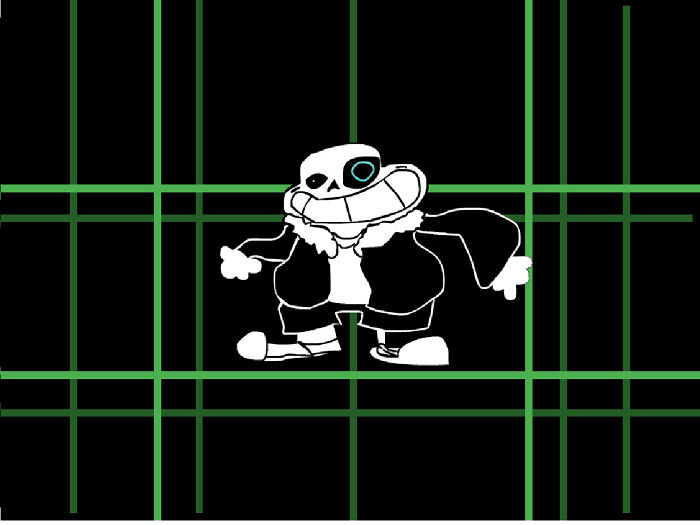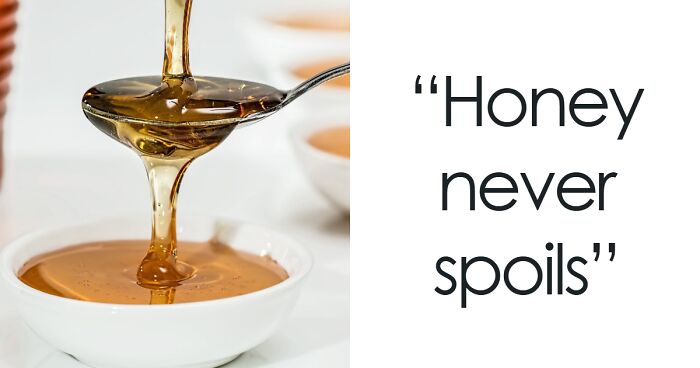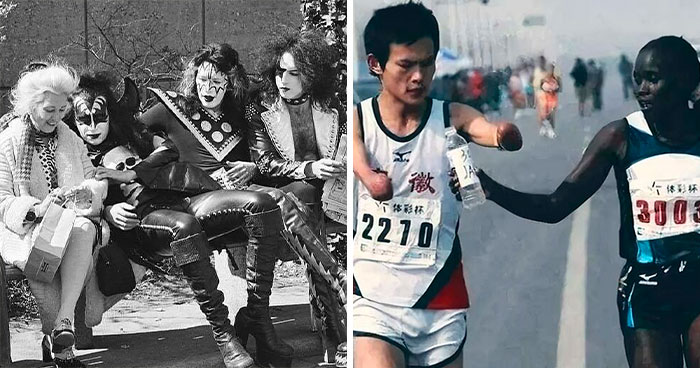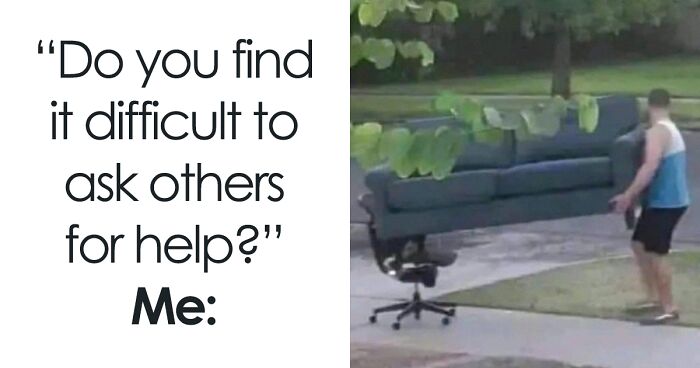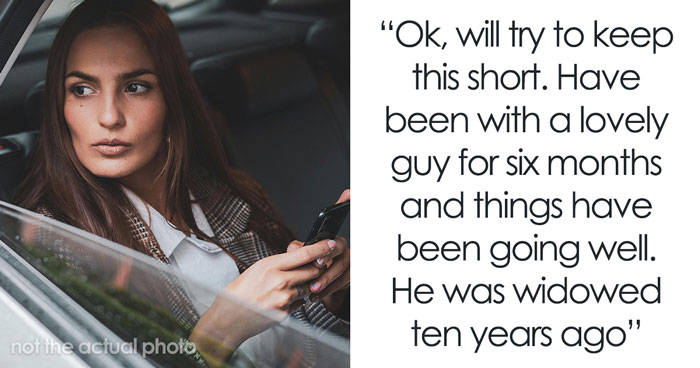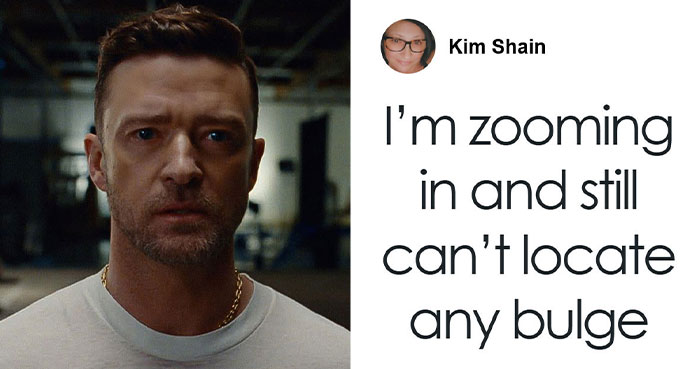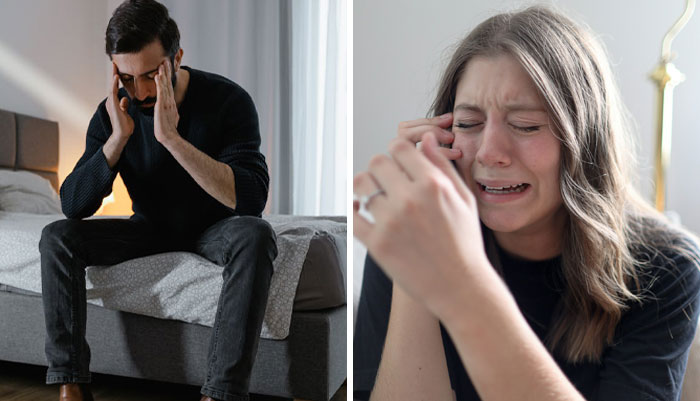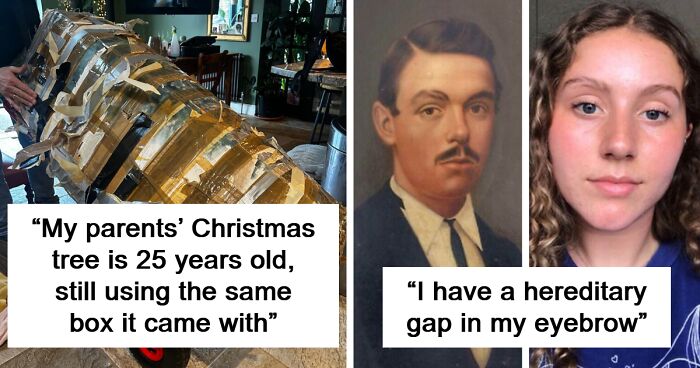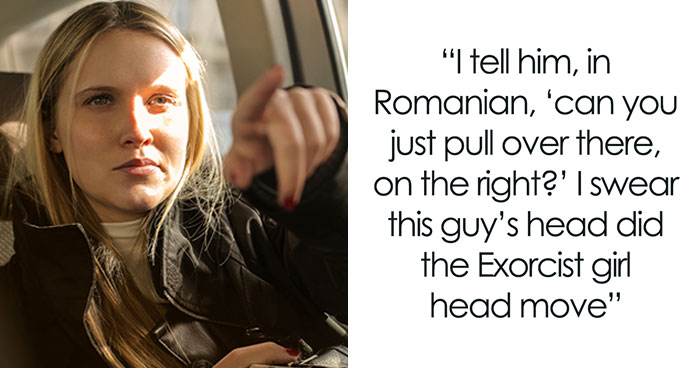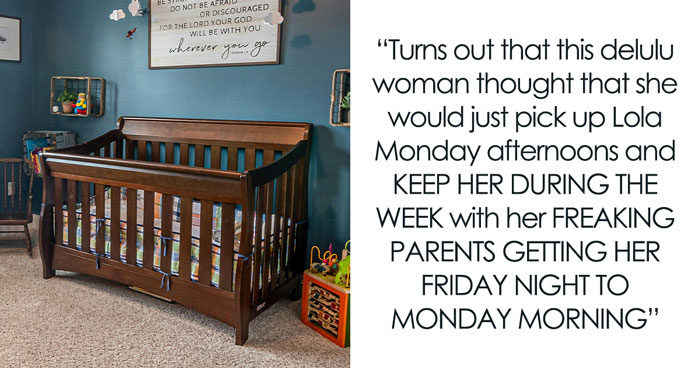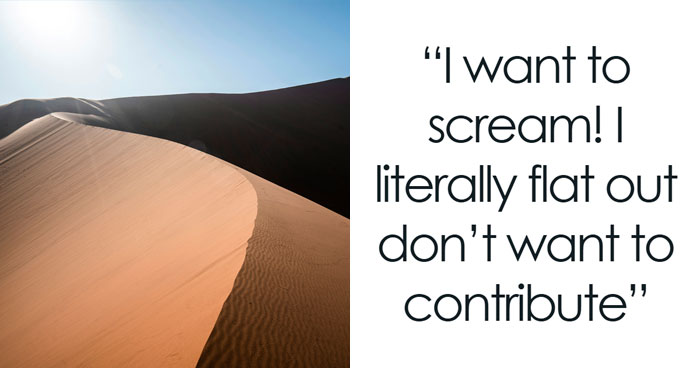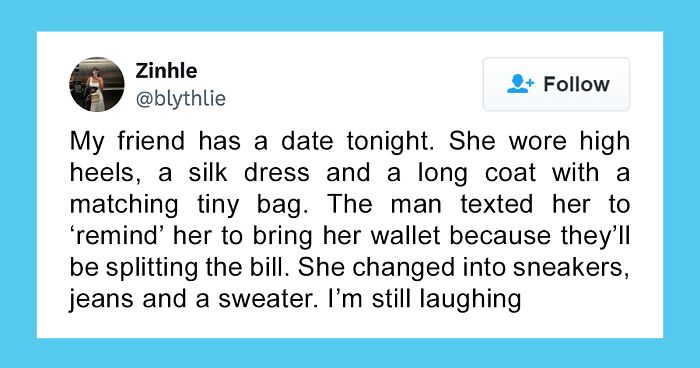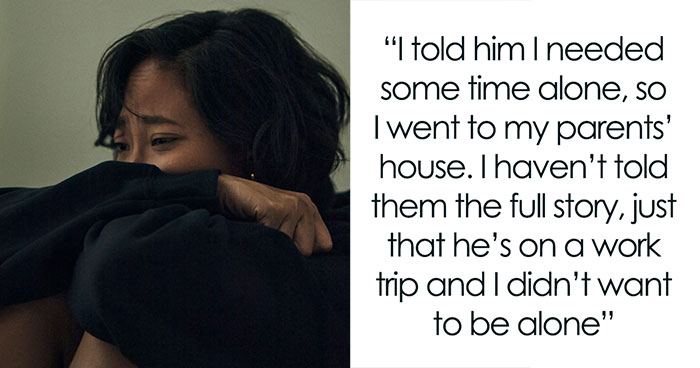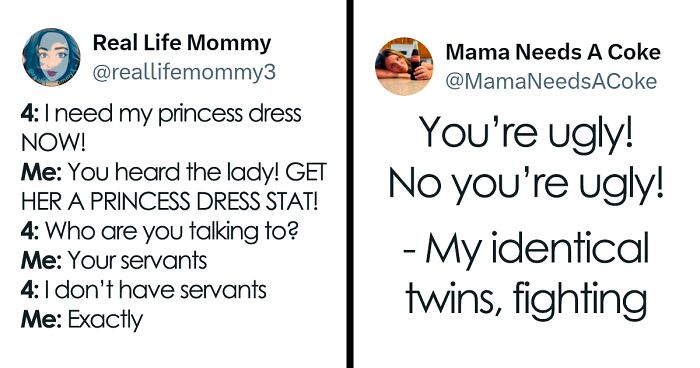
96submissions
Finished
50 Hilarious Tweets From Parents Who Aren’t Afraid To Tell It Like It Is (Best Of All Time)
Raising kids is a wild ride—full of love, laughter, and, let’s be real, plenty of chaos. Between school runs and trying to remember what sleep feels like, parents barely catch a break.
But when they do, they love to share their little ones’ antics with the world. And where better to do that than on X?
If you’re a regular at Bored Panda, you know that each month we celebrate the funniest and most relatable parenting tweets out there. This time, though, we’ve gone all in, creating the ultimate “best of all time” edition from the ones we’ve featured before. Enjoy!
This post may include affiliate links.
Many parents will tell you that their children’s smiles make all the hard work worth it. But even those precious moments don’t erase the very real weight of the struggles that come with raising them. Sometimes, it can feel overwhelming, leading to what’s commonly known as parental burnout. In fact, a staggering 66% of parents report experiencing this exhaustion, and one study found that parents in Western countries are among the most affected in the world.
While parental burnout might not be something you’ll find in a medical chart, psychologists recognize it as a specific form of burnout—a work-related phenomenon now acknowledged as a syndrome by the World Health Organization.
“As with burnout, parental burnout is defined as physical, emotional and mental exhaustion due to the ongoing demands of caring for one’s children,” says Dr. Jennifer Yen, a psychiatrist at UTHealth Houston.
Parenting is demanding by nature, so it’s not always easy to distinguish between normal stress and burnout. Dr. Yen suggests looking out for signs like fatigue, irritability, changes in sleep, appetite, mood, or even physical aches and pains. What makes parental burnout stand out is the intensity of these symptoms and how much they interfere with daily life.
“It’s a state where you have been giving, and giving, and giving and giving—until you’re totally empty,” describes Kate Kripke, a clinical social worker and the founder of the Postpartum Wellness Center in Boulder, Colo.
Dr. Yen also points out some specific red flags of parental burnout, such as feeling angry or resentful about caring for your children and starting to withdraw from them, either physically or emotionally. Some parents may even feel trapped or fantasize about leaving, she adds.
Damn kid is mobile now - it was so much easier when it was a baby and dropped food everywhere for me!
Because parental burnout can be so damaging for parents, it’s crucial for them to take breaks. “Taking time out is particularly important for moms and dads,” says Dr. Stuart Lustig, a child psychiatrist and national medical executive for behavioral health at Evernorth. “Much of a parent’s day revolves around providing for someone else, and the tasks can be physically and emotionally draining. Breaks help parents reset, or to use an analogy, refill their cups.”
As Jeff Temple, a psychologist and director of the Center for Violence Prevention at the University of Texas Medical Branch, explains, giving yourself a break is like putting on your own oxygen mask first before helping others.
“If you run out of oxygen, you’re of no use to your fellow passengers,” he says. “Same holds true for parenting. If you don’t take care of yourself, you’ll be a less effective parent and more prone to burnout and lashing out.”
Parents who take a moment to step back often find it helps them reconnect with who they are, as was the case for Jasmine Jaksic. She had been juggling work, raising a child during the pandemic, and maintaining her relationship with her husband. Finally, she decided to take a spontaneous trip to Amsterdam with a friend, leaving her husband in charge of their kid.
“Although it was a short trip, it gave me a glimpse of that laid-back, goofy self that got lost in the pandemic and parenting vortex,” she says. “I came back with a renewed interest in keeping that part of me alive. It was also a great opportunity for my son to bond with his father and do things their way.”
“My husband is now planning a trip of his own to visit his friends and family,” she adds. “After all, there is still hope for us to someday engage in a long and stimulating conversation that does not involve taking out the trash or doing laundry.”
That said, parents don’t have to go to the extent of organizing a trip to another country to prevent or manage burnout. It can be much simpler and more manageable.
“A mental health break is different for everyone,” says Lustig. “One person might need to physically leave the house and go for a walk outdoors. Another person may just need to go into a different room and meditate or listen to relaxing music.”
“There should be less of a focus on what, when and how long the activity is, and more focus on how you feel during or after the activity,” he continues. “Do you feel refreshed and rejuvenated? Happier and recharged? If yes, consider it a mental health break. If not, try something different next time. Everyone’s needs are different, so understanding what best helps you individually is key.”
Anything like this ,enjoy it for as long as you can.
In practical terms, Temple advises parents to take at least one mental health break each day—“even if only for 30 minutes,” he says. The duration and frequency, he notes, will depend on factors like individual characteristics, the number of children, their temperament, available support systems, and other life stressors.
Temple also suggests parents should aim for “going on dates with your partner, without the kids at least twice a month.” If needed, he recommends “utilizing extended support networks or swapping babysitting duties with other parents.”
But on those days when finding even half an hour feels impossible, taking just a few minutes can still provide a much-needed reset. “Small breaks in one’s day can be helpful, especially for busy parents,” Lustig says.
“Five-minute meditations can help reset one’s day and act as a mental health break. A few minutes outside in the sunlight, drinking a cup of coffee or writing in a journal can work too. Setting a timer and concentrating on your breathing for a minute or two can help kick start creativity and focus.”
And don’t underestimate your children—they will likely understand your need for some ‘me time’ if you explain it to them and may even support you in their own way.
“Tell your children why a mental health break is important to you,” encourages Lustig. “If your children, especially adolescents or teenagers, see you taking time for yourself and understand the importance of mental health, they are likely to model this behavior as they grow older.”
Parental burnout is no joke, so be sure to take care of yourself—you deserve it.
Less than three and they should not be allowed to publish at all but made to work in a daycare for a month
I have told this tale before on BP but I will tell it again: One day, before Kindergarten, my daughter who was then aged 3 or 4, screwed her eyes up and stared at me before asking "Are you wearing any make-up today, Mummy?" and I said "Yes, darling, I am wearing a little bit" (I was knackered). And she shot back with "You need more". Ouch!
The sacrifices we make for our kids. And do they appreciate it?
I think there's a lot of confusion between 'invalid' and 'reasonable.' You don't have to agree that wanting the juice back in the orange makes sense to say something like, "I realize you're upset. Remember, when you're upset, you can... (insert whatever you want the kid to do to deal with frustration)." Adults also get frustrated and upset when the world doesn't work the way they want it to! The point of not 'invalidating' a kid's feelings is that there's no wrong emotion to have, but there are right and wrong ways to express it. And they hopefully become an adult who, for example, vents to a friend about their ex's new partner instead of keying their car.
I don't understand how this isn't getting things done. That's a full weekend for me
the effort this is taking not to laugh and get in trouble for looking at this in class will break me.
You'd think the teen years were the sweet spot, but in actual fact, it's the worst of both worlds!
Sorry. Fűcked if I know what's going on.
My niece was a biter so I bit her back (laid my teeth very gently on her arm) and said every time you bite me I'm going to bite you, she was so shocked about how it felt, she never did it again.
"My dad can rip your Dad's arms off!" Also, That is one hellofa handsome Silverback.
My daughter drives me nuts sometimes, but having her was the best decision I ever made. She's the most wonderful part of my life. Being her dad is the closest I've ever come to filling that eternal hole that all humans seem to be born with.
I get you Beth but try to remember that a lot of posters are actual, literal children pretending to be adults. I try to think of that even when I doubt it’s true!
Load More Replies...My daughter drives me nuts sometimes, but having her was the best decision I ever made. She's the most wonderful part of my life. Being her dad is the closest I've ever come to filling that eternal hole that all humans seem to be born with.
I get you Beth but try to remember that a lot of posters are actual, literal children pretending to be adults. I try to think of that even when I doubt it’s true!
Load More Replies...
 Dark Mode
Dark Mode 

 No fees, cancel anytime
No fees, cancel anytime 


